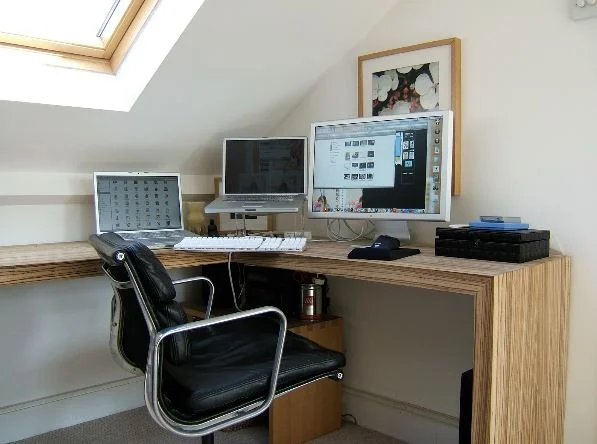A big dilemma that faces many startup companies is where to work. Many modern businesses require only a computer and a phone. This gives you free reign to practically work wherever you like whether that be an office, a park bench or tucked up beneath your duvet.
There’s a lot of commercial real estate available on the market, some of which can be relatively cheap. You can even rent a desk in a shared office space. This can be a great way of escaping the distractions of home – whether that be the comfort of your bed, the television or the kids running around. Being housebound all day also may lead to feelings of isolation and depression. Leaving the house for some can help separate home life and work life and make you not feel so trapped.
That said, working from home certainly costs less. You haven’t got the extra rent of an office or the cost of travel. By setting up one room in your home and sing it solely as an office, you may also be able to deduct it from tax (10% of your rent can go on office space, 5% if you use it for other home purposes). You can claim the rent of your office as an expense, but working from home is always going to work out cheaper.
Of course, there are happy mediums. If the social buzz doesn’t distract you, a coffee bar or pub could be a good place to work from. Alternatively, a library might be a quieter option (also look into local community centres and youth centres that may offer their premises for free).
Eventually of course you may want to employ more staff. This begs the question – can your staff also work from home? Cloud technology has made sharing information easy and there are video chat tools that can make to face-to-face meeting possible without actually being there in person.
Of course, training and supervising in the first few weeks may prove difficult. Whilst you can see people’s progress on a document, you can’t check to see if what they’re really doing with their day. On top of this, bonding with staff may be difficult online or over the phone. Having an office can provide the chance to socialise, to make one another coffee and to talk to each other without having to make a call or type an email.
Some businesses will hence bite the bullet and rent an office once employees enter the equation. The extra money that these employees will take on from lifting the load off your shoulders can help you pay for an office. Generally, somewhere small may be all that’s needed in the beginning (enough to contain four or five people so that you have some room for growth). From there you can branch out and have people working from home, whilst still having a few close workers around you to keep you regularly updated with essential tasks. Or you can build an empire and one day have your own floor on Canary Wharf. Your choice!



